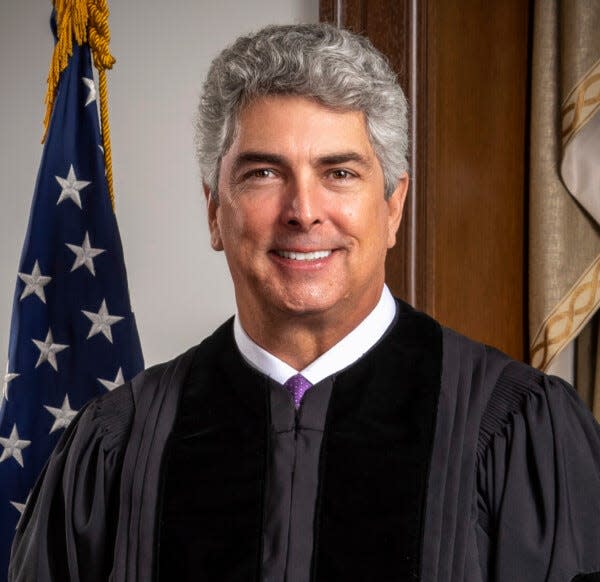Georgia's Supreme Court election: What to know ahead of the primary
- Oops!Something went wrong.Please try again later.
Another Georgia election is right around the corner, and thanks to early voting, many residents have already cast their ballot. While partisan politics generally takes up the most airtime, one nonpartisan race has begun to make headlines this year: the battle over a state Supreme Court seat.
Though they are often much quieter than their partisan counterparts, judicial elections nonetheless play a crucial role in the lives of Georgia residents. Here’s what you need to know about this year’s judicial elections.
When are the next Georgia judicial elections?
Nonpartisan elections will be held as part of the Georgia state primary on Tuesday, May 21. Voters should check their My Voter Page at https://mvp.sos.ga.gov/s/ to view the most up-to-date information about their registration status, polling locations, and sample ballots.

Who is running for the Georgia Supreme Court in 2024?
Four sitting justices, John Ellington, Nels Peterson, Andrew Pinson and Chief Justice Michael P. Boggs are currently running for re-election. The newest member of the court, Andrew Pinson, is currently being challenged by former Democratic Congressman John Barrow.
Barrow recently made headlines by openly centering abortion rights in his Georgia Supreme Court campaign — a tactic that has made him the subject of an ethics complaint due to a state law that urges judicial candidates to “not make statements or promises that commit the candidate with respect to issues likely to come before the court that are inconsistent with the impartial performance of the adjudicative duties of judicial office.”
More: Mark your calendars: Here is every date you need to know to vote in Georgia in 2024
Barrow defended his position at the Atlanta Press Club Debates in April.
“Partiality has nothing to do with your opinions about the law,” he said. “As the root word implies, it entails feelings about the parties, being in favor of one party or another. The United States Supreme Court explained this a good while back when they said ‘impartiality,’ of the sort that judges should strive for, means you're not going to favor one party over another.”
“Every person who's expected to be a judge has to have strong feelings about the law,” Barrow continued. “If he doesn't, he's not qualified to serve on the court.”
Barrow filed a lawsuit in federal court in response to the complaint, arguing that it impedes his First Amendment right to free speech, but a judge has yet to issue a ruling.
Georgia elections: Important dates, how to register, and what to know ahead of 2024
What types of cases does the Georgia Supreme Court hear?
The Georgia Supreme Court is the highest judicial power in the state, and thus will review decisions in both civil and criminal cases made by lower courts across the state. The court has appellate jurisdiction over a wide variety of cases, including:
Constitutionality cases
Election contests
Cases involving title to land, divorce, wills or equity
Death sentence appeals
Habeas corpus (unlawful detention) cases
All cases involving extraordinary remedies
The nine justices will typically hear cases en banc, and assign one justice to write the court opinion. In order for a lower court decision to be overturned or reversed, at least five justices must concur.
How do Supreme Court elections work?
Unlike seats in the legislative or executive branch, justices on the supreme court are elected through a nonpartisan election process, and serve six-year terms. This year, four of the nine justices are running for re-election, with only one justice facing a primary challenger.
Although Supreme Court justices in Georgia are elected via popular vote, there is rarely an open seat on the court; new justices are almost always appointed by the governor to finish out their successor’s term, and will then run as an incumbent in the next election.
Though partisan politics don’t necessarily play a role in judicial campaigns, the overall composition of the court skews conservative. Out of the nine sitting justices, eight were appointed by Republican governors, including Pinson. The other was appointed to a state appellate court by a Democratic governor, and later won his seat unopposed.
This article originally appeared on Savannah Morning News: Georgia judicial & nonpartisan elections: Everything you need to know
